
Employee Follows The “Customer Is Always Right” Rule Literally After Being Written Up, The Boss Pays With His Job
Interview With AuthorWorking at a food service job can be daunting. You deal with hangry or entitled customers, listen to complaints, and handle odd orders. But all that is nothing compared with having a toxic manager sitting on your shoulder.
Recently, a story from a former food service employee was shared on the Malicious Compliance subreddit and caught everyone’s attention. “This job was absolutely horrible, as I got written up for anything and everything I did,” the author wrote.
But the tension rose to the boiling point after one particular incident. Despite the company’s strict policy of charging customers for their add-ons, the supervisor burst into yelling at his employee in front of the client with a “customer is always right.”
Read on below to find out how that evolved into a malicious compliance rollercoaster.
A former food service employee shared how their supervisor’s lesson that “the customer is always right” turned into malicious compliance
Image credits: s_kawee (not the actual photo)
Image credits: AboutImages (not the actual photo)
Image credits: Pressmaster (not the actual photo)
“I genuinely dreaded going to work each and every day, as at the time I felt like I was a failure,” the author who wished to stay anonymous recounted. “It was always me wondering ‘what am I going to do wrong today?’ Which was horrible for my mental health,” they told Bored Panda.
When asked if they would do anything differently about the situation today, the author said: “I would’ve quit a lot sooner, first and foremost. Also, if I knew my employee rights back then, I would have recognized what was happening was harassment and would’ve stood up for myself and everyone this was happening to.”
For anyone in a similarly toxic workplace, the author’s most important advice is to learn and understand the rights you have. “You have the right to work in a non-hostile environment, and supervisors do not have the right to harass you or anyone else.”
The Redditor continued: “I would also say, know your worth. Each and every person has skills that they bring to the table, and that is awesome. Some employers or supervisors like to use people for those skills while also cutting them down at every turn, and no one deserves that at all.”
When it comes to the good old saying that “the customer is always right,” the author believes that the customer is right about their own preferences. However, “I also think that that phrase has been overused way too much to the point of creating almost like a toxic customer-employee relationship.”
The saying “the customer is always right” was invented by Harry Gordon Selfridge in 1909 to prioritize the customers’ satisfaction
The good old phrase “the customer is always right” was pioneered by a retailer named Harry Gordon Selfridge in 1909, and was soon picked up by fellow retailers John Wanamaker and Marshall Field. This approach was meant as a policy to control floor managers, but it stuck for many years to come and is still widely cited after a century.
But experts warn that in the modern world, the mantra is outdated and can no longer be applied. One of the worries is that by telling the customers they are right no matter what, you turn on the green light for entitled people to demand virtually anything. If they feel right by definition, they acquire an unfair advantage over the employees, making their jobs miserable.
“Support your team first and then customers,” experts warn by pointing out exactly how outdated the mantra is
“If the customer is always right, employees have to take the abuse of customers with zero support from management,” Kumar Arora, a serial entrepreneur turned investor, argues. “What happens next? Employees move on to opportunities that are not as filled with anxiety. Support your team first and then customers.”
According to Kumar, simply saying the customer is always right doesn’t make it so. “Sometimes customers are wrong and employees need to know how to handle them accordingly.” Like, “taking ownership of a mistake that the business is not accountable for is a slippery slope,” he explains.
Instead, brands and companies should seek a smart balance by giving space to be right to both workers and customers.
The author later added some more information in response to these comments
This is how the rest of the discussion evolved
The full quote is, "The customer is always right IN MATTERS OF TASTE." So if Mrs. Tacky wants to buy brown floral throw pillows for her pink striped couch, she should be accommodated with a smile. It does not mean you have to bend store policy whenever someone throws a tantrum.
How do I upvote this more than once? Say it again, a little louder for those in the back who just don't get it!
Load More Replies...This write up thing is wild. In France you cannot have a disciplinary meeting without your worker representatives to assist you on demand and to make sure there are legitimate concerns you need to work on. What they did to her is basically harassment.
I've got to go work in France. They have awesome labor laws.
Load More Replies...She worked for 2 years taking abuse? That is the insane part of it all.
Right out of high school. Knowing what you're worth and what's acceptable from your higher-ups often comes with age/experience.
Load More Replies...The full quote is, "The customer is always right IN MATTERS OF TASTE." So if Mrs. Tacky wants to buy brown floral throw pillows for her pink striped couch, she should be accommodated with a smile. It does not mean you have to bend store policy whenever someone throws a tantrum.
How do I upvote this more than once? Say it again, a little louder for those in the back who just don't get it!
Load More Replies...This write up thing is wild. In France you cannot have a disciplinary meeting without your worker representatives to assist you on demand and to make sure there are legitimate concerns you need to work on. What they did to her is basically harassment.
I've got to go work in France. They have awesome labor laws.
Load More Replies...She worked for 2 years taking abuse? That is the insane part of it all.
Right out of high school. Knowing what you're worth and what's acceptable from your higher-ups often comes with age/experience.
Load More Replies...
 Dark Mode
Dark Mode 

 No fees, cancel anytime
No fees, cancel anytime 










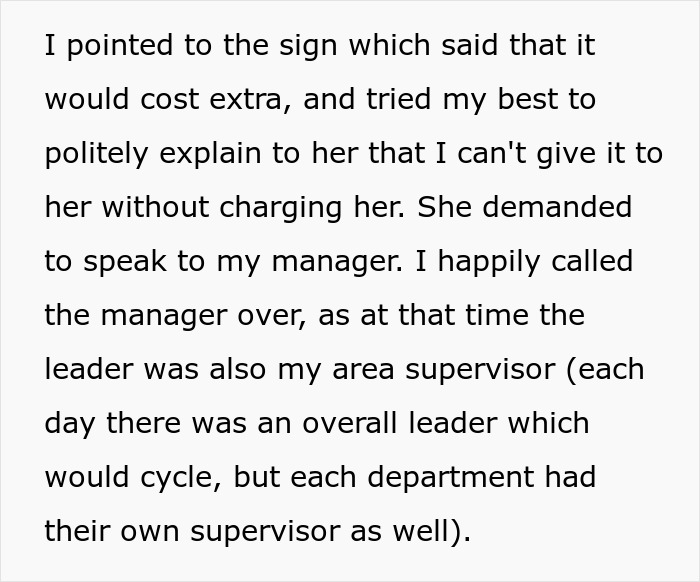





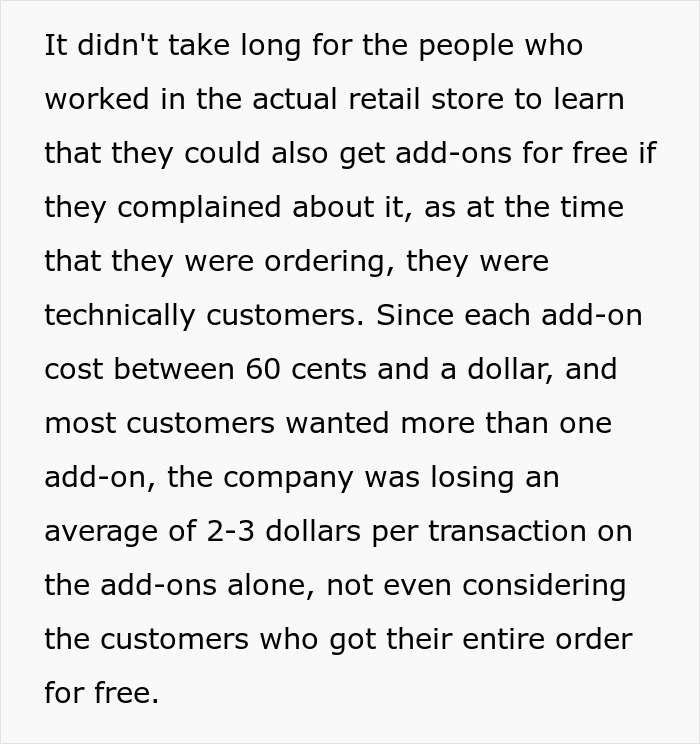




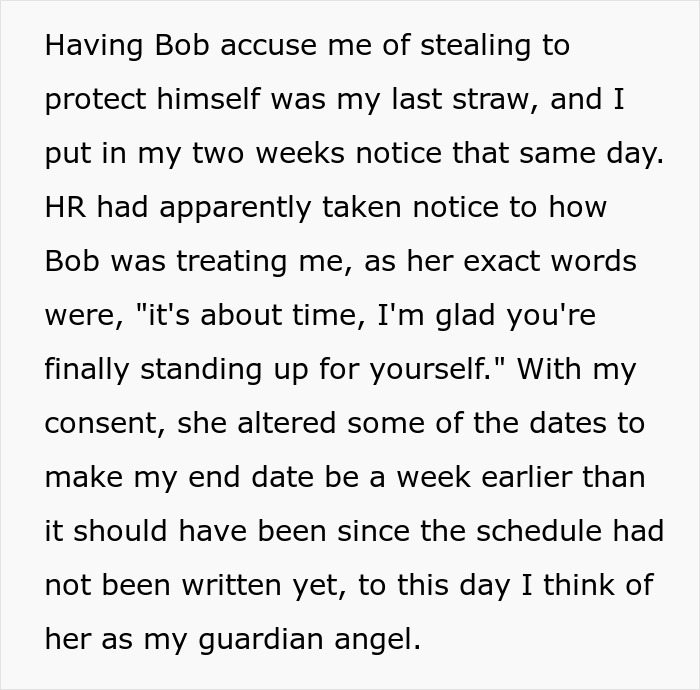

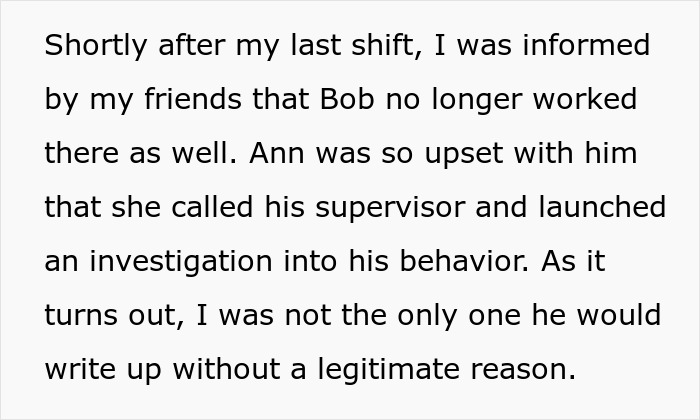
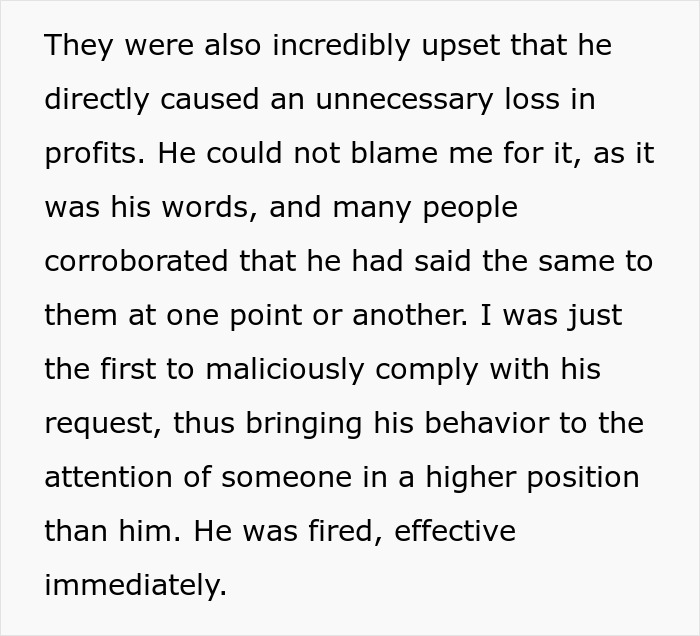
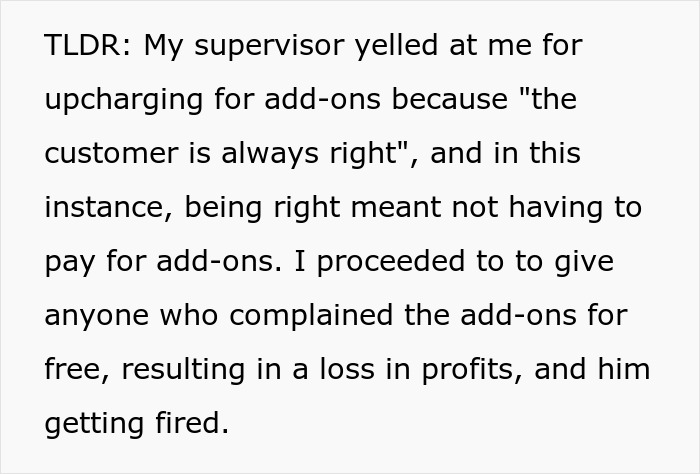

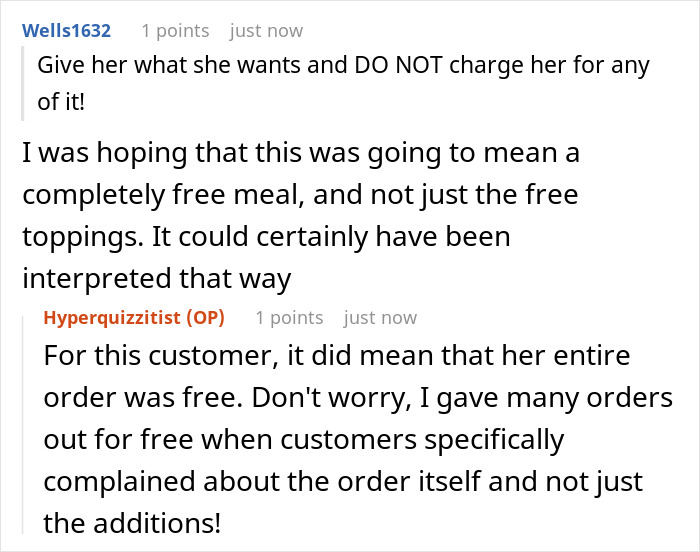
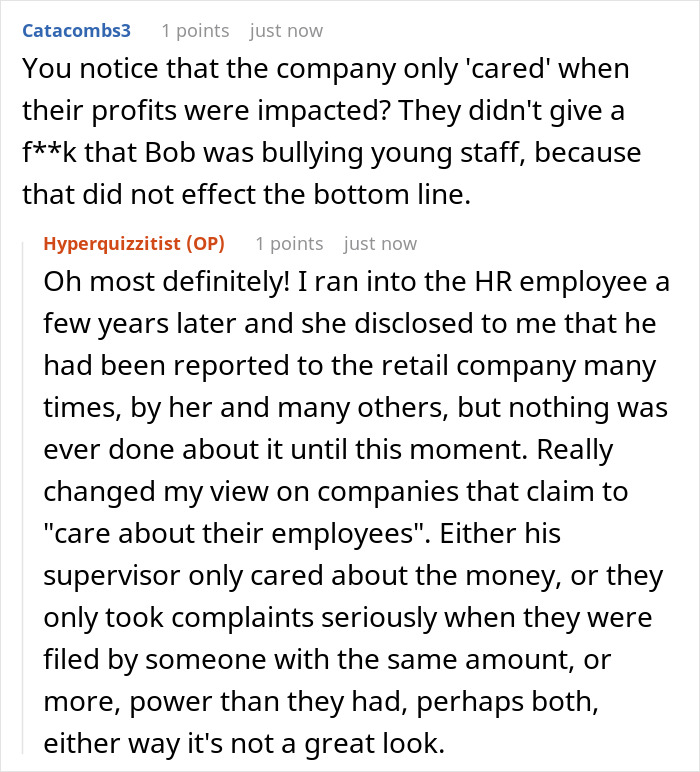
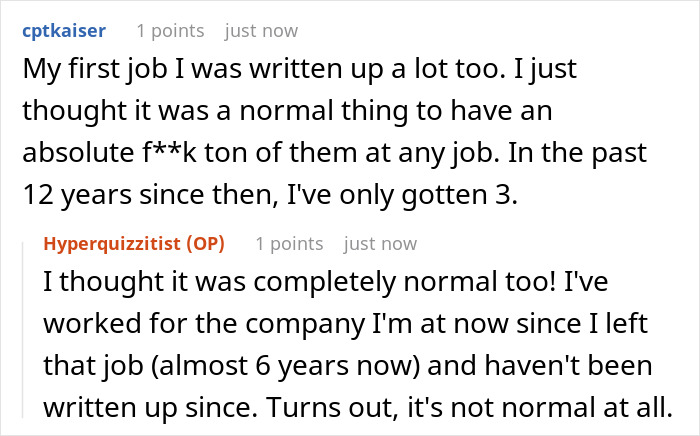
























































66
36